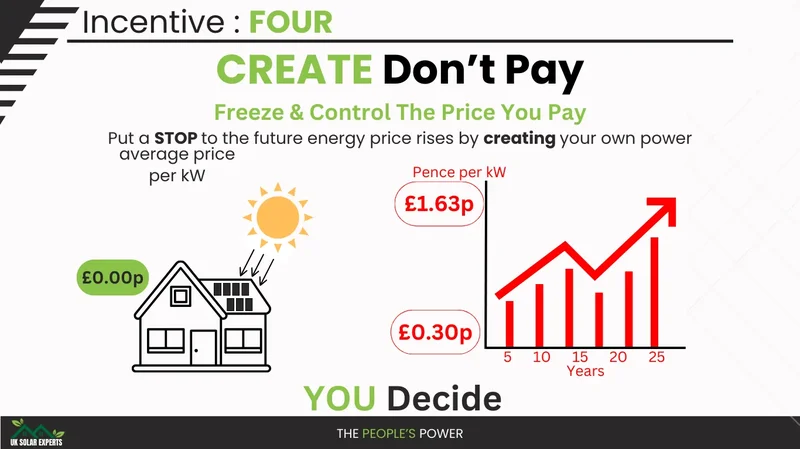The Fight for Solar Incentives: What's Really at Stake and Why It's Our Biggest Opportunity Yet
You’re staring at your power bill, and the number looks like a typo. It’s a feeling that’s about to become unnervingly common in places like Pennsylvania, where headlines like AI, crypto, and Pennsylvania’s war on the little guy | Opinion - Erie Times-News are screaming about potential 70% rate hikes. The culprits? The silent, humming server farms running our new AI gods and the relentless, number-crunching data centers mining for digital gold. It feels like a shakedown, a future where your refrigerator light is being subsidized by a hedge fund’s Bitcoin operation.
And yes, the immediate reaction is anger. It’s a righteous anger. But when I first read about this, after the initial jolt, I felt something else entirely: a surge of pure, unadulterated excitement. Because this isn’t the story of a system failing. This is the story of a system being forced, finally, to evolve. We are not watching a crisis unfold; we are witnessing the painful, necessary, and absolutely thrilling birth of the next energy paradigm.
The Great Overload
Let's be brutally honest about what our power grid actually is. It’s a 20th-century marvel—a sprawling, centralized beast of copper and steel designed for a world of predictable factories and lightbulbs that turned on at dusk. It’s like a beautifully engineered Roman aqueduct, a testament to a bygone era. The problem? We’re now trying to funnel the digital equivalent of Niagara Falls through it. The insatiable, 24/7 thirst of AI and high-performance computing isn’t a gentle stream; it’s a tidal wave of demand the old system was never built to handle.
The situation in Pennsylvania is a perfect microcosm of this conflict. For years, small consumers have been shouldering 15% annual rate hikes while outdated laws, some with roots going back to 1926, continue to pump $35 billion a year into propping up fossil fuels. It’s a policy framework that actively punishes the future to protect the past. You have this incredible, world-changing technology in AI, and we’re trying to power it by burning rocks we dug out of the ground. Does that make a lick of sense to you?
The fight there is being framed as a “David and Goliath” battle, with homeowners and small businesses pitted against tech giants. And they’re right, it is. But what if Goliath’s sheer size and mindless consumption is the very thing that finally gives David the justification to build a newer, smarter, better slingshot? What if this immense, seemingly unstoppable demand from AI is the one thing powerful enough to shatter the political and economic inertia that has kept our energy system trapped in the last century?

This Is Our Broadband Moment
I want you to think back to the late 1990s. Remember the screeching, agonizing sound of a dial-up modem? Remember waiting five minutes for a single image to load? The early internet was pushing the limits of our telephone infrastructure, and the system was groaning. The strain was immense. But that pressure didn't kill the internet. It did the opposite. It created an undeniable, screaming economic demand for something better. It forced the creation of broadband.
That is precisely where we are right now with energy. The colossal power draw of AI isn't the problem; it's the demand signal. It's the market screaming that the old way is no longer good enough. This is the catalyst we’ve been waiting for—the economic imperative that will make the mass build-out of a new grid not just a nice-to-have environmental goal, but a cold, hard, economic necessity.
This is the convergence of exponential technological growth and urgent infrastructural need and it's happening right now—it means the business case for a truly intelligent, responsive, and decentralized grid isn't a 2050 dream anymore, it’s a 2025 imperative. We’re talking about a fundamental rewiring of our society. We need to build a smart grid—in simpler terms, imagine millions of homes and businesses with their own solar panels and batteries, all connected to a network that can intelligently route power in real-time. Your house isn't just a consumer anymore; it's a tiny, independent power station contributing to a resilient, continental-scale super-organism of energy.
This is the kind of breakthrough that reminds me why I got into this field in the first place. Of course, with this incredible opportunity comes a profound responsibility. We cannot build this new world on the broken foundations of the old one. The transition has to be equitable. The goal isn't just to power AI more efficiently; it's to democratize energy itself, giving power—both literal and economic—back to individuals and communities.
This Isn't a Crisis. It's an Ignition.
Let’s stop mourning the death of an outdated system. The fight in Pennsylvania isn't just about utility bills. It’s the first tremor of a tectonic shift. The immense hunger of artificial intelligence is not a plague; it is the gravitational pull of the future, warping the present and forcing us to build a world capable of containing it. This is the moment we trade our sputtering, century-old engine for an electric motor. The pressure is building, and it’s under that pressure that we’ll forge the clean, intelligent, and decentralized energy backbone of tomorrow. Let’s get to work.
-

Warren Buffett's OXY Stock Play: The Latest Drama, Buffett's Angle, and Why You Shouldn't Believe the Hype
Solet'sgetthisstraight.Occide...
-

The Great Up-Leveling: What's Happening Now and How We Step Up
Haveyoueverfeltlikeyou'redri...
-

The Business of Plasma Donation: How the Process Works and Who the Key Players Are
Theterm"plasma"suffersfromas...
-

Zcash's Zombie Rally: The Price Prediction vs. What Reddit Is Saying
So,Zcashismovingagain.Mytime...
-

NJ's ANCHOR Program: A Blueprint for Tax Relief, Your 2024 Payment, and What Comes Next
NewJersey'sANCHORProgramIsn't...
- Search
- Recently Published
-
- The Fight for Solar Incentives: What's Really at Stake and Why It's Our Biggest Opportunity Yet
- Scott Bessent's 'Price Floor' Plan for China: What We Know and Why It's Pure Insanity
- Salesforce (CRM) Stock Surges on $60B Revenue Target: What the Forecast Means and If the Numbers Add Up
- The SMR Stock Gold Rush: What's Behind the Army Deal Hype and Is It All Just Hot Air?
- United Airlines Stock Drops on Mixed Q3 Results: Analyzing the Earnings Beat and Revenue Shortfall
- COOT Stock's Breakthrough Surge: Why It's Happening and What It Means for Our Future
- Tech Giants' $40B Aligned Data Centers Acquisition: Why This Is a Turning Point for AI's Future
- Turkey's "Steel Dome" Defense System: What It Is and Why It's a Game-Changer
- Mantra: A Quantitative Look at the Psychology and Actual Impact
- Nasdaq Index: Performance, Key Drivers, and Future Outlook
- Tag list
-
- Blockchain (11)
- Decentralization (5)
- Smart Contracts (4)
- Cryptocurrency (26)
- DeFi (5)
- Bitcoin (29)
- Trump (5)
- Ethereum (8)
- Pudgy Penguins (5)
- NFT (5)
- Solana (5)
- cryptocurrency (6)
- XRP (3)
- Airdrop (3)
- MicroStrategy (3)
- Stablecoin (3)
- Digital Assets (3)
- PENGU (3)
- Plasma (5)
- Zcash (5)
- Aster (4)
- investment advisor (4)
- crypto exchange binance (3)
- SX Network (3)
- solar incentives (3)
